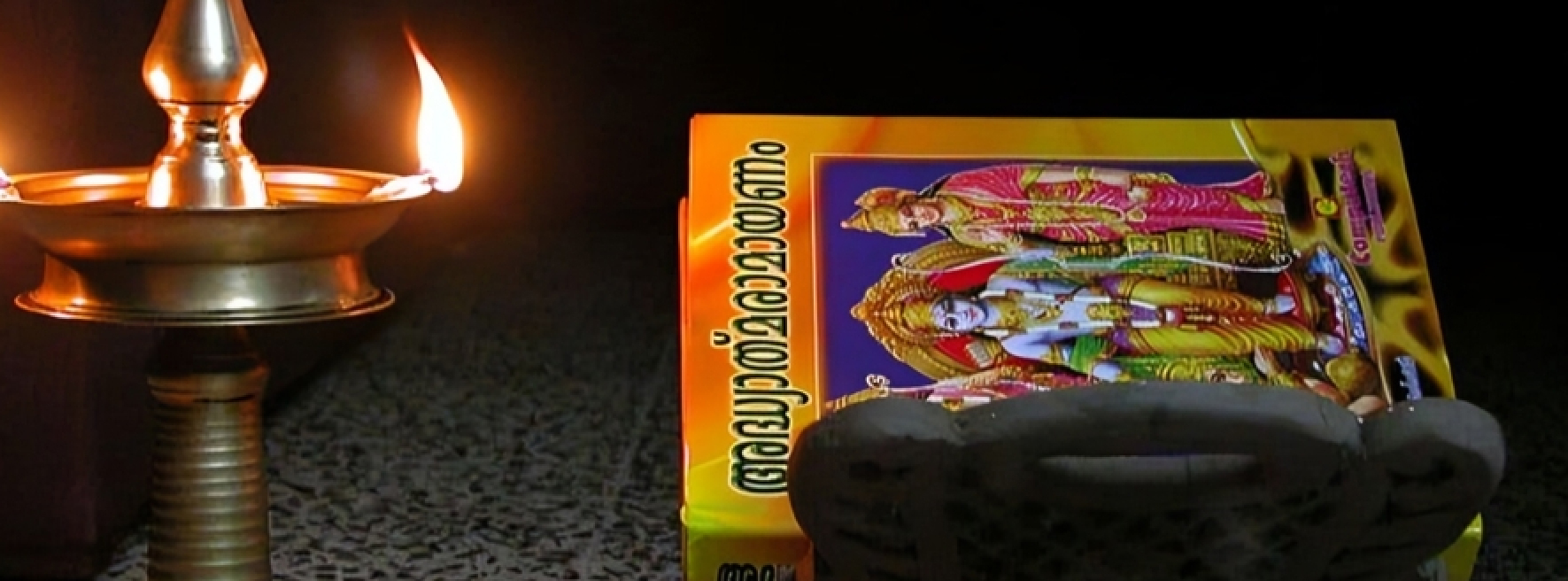
Karkidakam: A Month of Monsoons, Mantras, and Renewal
Discover Karkidakam, a month of monsoon rains, spiritual Ramayana chants, and rich Kerala traditions. Explore legends, Ramayana Masam, and the serene rituals at Guruvayur Devasthanam
Karkidakam is a month full of monsoons,
mantras, and renewal. The very mention of Karkidakam brings to mind raindrops
falling on green leaves, the soft glow of an oil lamp in the, and the soothing
recitation of the Ramayana in homes. This final month of the Malayalam calendar
isn't just about heavy rains; it's a time for reflection, spiritual
refreshment, and ancient customs in Kerala.
A Season Steeped in Mythology
Legends are plentiful regarding Karkidakam. Some believe it's when Lord Vishnu
rests on the serpent Anantha Shesha, causing a reduction in the sun's power and
a shift towards the south (Dakshinayana). This change is thought to make our
bodies more susceptible to illnesses.
Ramayana: The Beacon of Hope
Karkidakam is when Kerala turns into Ramayana Masam (Ramayana Month). The epic
story of Lord Rama's righteousness and perseverance deeply resonates with
people. Folks either chant verses from the Ramayana at home or head to temples
for thorough chanting sessions (Ramayana Parayanam). The belief is that these
chants keep evil at bay and bring good luck.
Guruvayur: A Spiritual Sanctuary
Guruvayur Devasthanam is one such temple that comes alive during Karkidakam.
Dedicated to Child Krishna (Baalakrishna), the temple follows strict rituals
all through this month. Here are some unique practices:
●
Neyviruthu (Ghee Bath): The
sanctum sanctorum receives a special sacred bath with loads of ghee for the
whole month. The ensuing ‘Neyviruthu’ is shared among devotees as it's believed
to have healing properties.
●
Vrishchika Sankalpam: A detailed
ritual where prayers and prostrations are made to Lord Vishnu in the form of a
scorpion (Vrishchika). It's said to repel negativity and bring prosperity.
●
Observances: During Karkidakam,
the temple has a more serene setting. Certain ceremonies like marriages and
‘thulabharam’ aren't conducted. People usually dress plainly and avoid
celebrations.
Beyond Rituals: A Time for Ayurveda
and Renewal
Apart from rituals, Karkidakam is also a time for Ayurvedic treatments and
rejuvenation. The monsoons are seen as ideal for detoxification processes in
the body. Many people undergo Panchakarma therapies - a sequence of treatments
to cleanse the body and restore equilibrium. Karkidakam also encourages
self-reflection and self-care practices including vegetarianism and avoiding
alcohol and certain spices.
The Essence of Karkidakam
Karkidakam goes beyond mere customs; it's a time to slow down, reconnect with
ourselves, and find comfort in age-old tales. The rhythmic recitation of the
Ramayana instills hope and faith in our hearts while the rains symbolize
washing away negativity.
As the monsoon sweeps through Kerala,
let's embrace the essence of Karkidakam - light an oil lamp, immerse ourselves
in the Ramayana, or simply enjoy listening to raindrops drumming on our roofs.
It's an occasion to honor traditions, nourish our bodies, and emerge refreshed,
prepared to welcome the new year with a lighter soul and stronger resolve.
Conclusion
Karkidakam may be a season steeped in tradition, but
its essence remains timeless. It's a reminder that amidst the hustle and bustle
of life, there's value in slowing down. It's a call to reconnect with
ourselves, our families, and our faith. As the monsoon rains recede and
Karkidakam draws to a close, we carry a renewed sense of peace and a spirit
invigorated by ancient wisdom. The lessons learned and the rituals observed
during this month become a legacy passed down through generations, ensuring
that the magic of Karkidakam continues to weave its spell, year after year.




